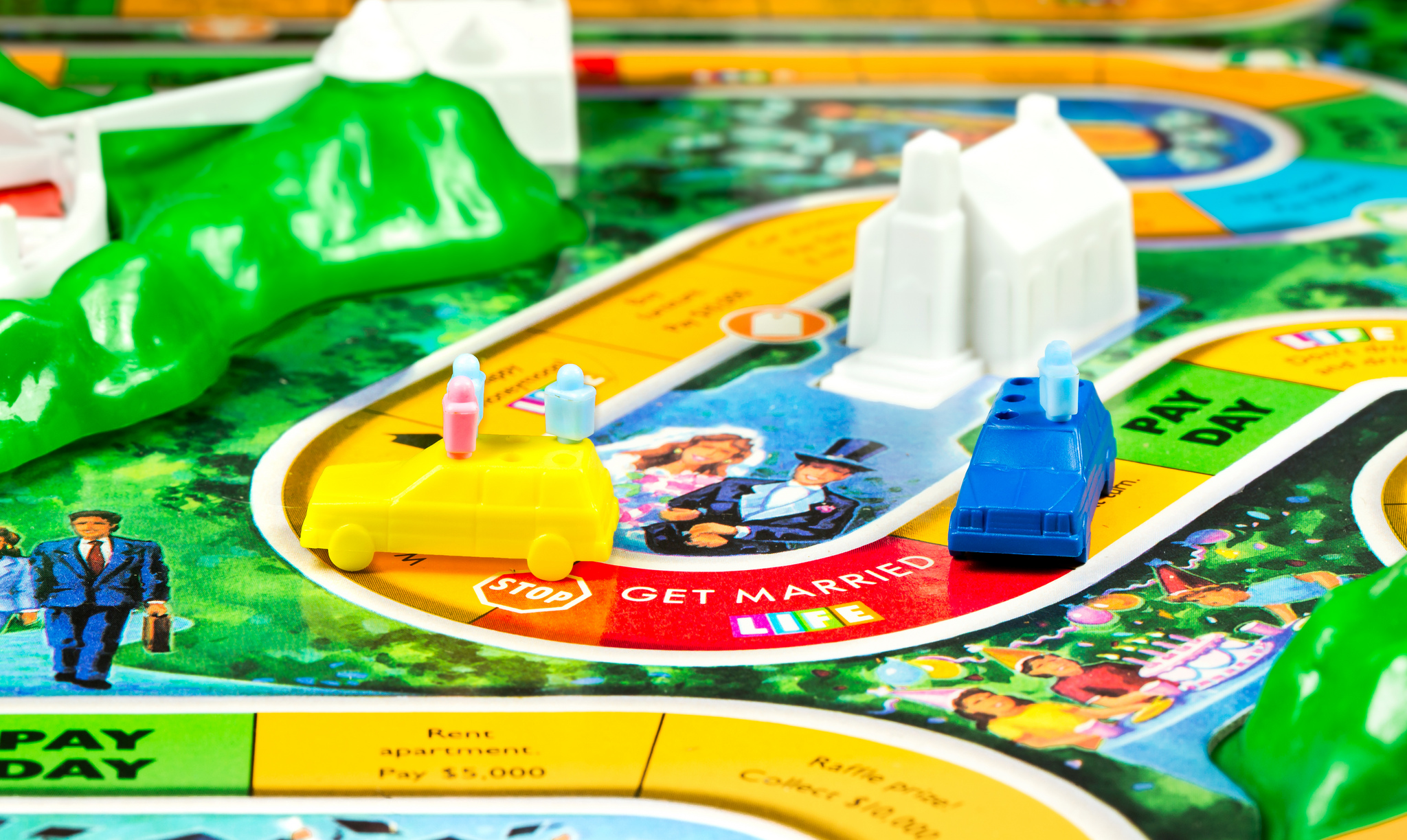Life is complex. Family, friendship, health, work, inequality, the state of the world all contribute to our understanding of and approach to our daily lives. This week’s Play Digest links up with games based on lived experiences.
It goes without saying that sometimes games can help escape these realms, even navigate them, or aid in solving real world issues. It’s worth noting that the board game we now know as Life was released in 1860 under the name The Checkered Game of Life, which, in fact, referred to its checkerboard-like playing surface, but which also might be the best unintended euphemism ever in board games.
When the popular Uncharted video game series was “recast” earlier this year with two women taking over the lead, the progression of gameplay wasn’t altered much. Over the course of the game, however, the relationship that develops between Chloe and Nadine has made some women reflect on not only of how sometimes complicated, competitive female friendships are portrayed on the game screen, but how it mirrors real life.
Women, and perhaps women of color especially, are subject to near-constant micro-aggressions aimed at their appearance. Wieden + Kennedy art director Momo Pixel created Hair Nah as a response to one such insult in particular. As a comment on those who cannot resist the lure of difference, Hair Nah has the player trying to get her avatar to the airport and onto a flight with as few “hair reaches” as possible. It is a great example of enlightenment through light humor.
DreamDaddy is a queer dating app sim in which you don’t just date a gay dad, you are the gay dad. The characters are given deep back stories, problem children, job woes, and identity crises. Gamewright Leighton Gray says it was important to her as a gay woman to develop an honest and humanistic approach for the LGBTQ gaming community. She added, “There’s so little queer content now that’s just light-hearted and fun and silly and showcases a really honest relationship. I think part of the goal for this was for it to be for everyone.”
More often than not life isn’t so interesting, as manifested in Desert Bus, once called the worst video game ever made. In it you drive from Tucson to Las Vegas and immerse yourself in all the monochromatic boredom of a roadtrip. But there was art in its mundanity and it has its fans (and raised a good deal of money for charity). Now there is a sequel, with a big “improvement”: if you win, you now get to drive the bus back to Tucson.
The life stage that vexes many of us the most perhaps (at least in the west) is death. Death isn’t addressed in the old Hasbro Game of Life (in which you’re more likely to cash in your 401k than meet the Angel Gabriel), but video games are full of it: graphic, grizzly, hyper-realistic, but usually atypical for the average player. Mortician’s Tale is different. Imagine, for a moment, that you run a funeral home. Mortician’s Tale is an outgrowth of the death positive movement, and aims to demystify the death and grieving process by putting the player in the mortician’s robe. It’s a game that would make Jessica Mitford proud.
Check in next week for a new roundup of the latest play news and stories.
(Image credit: The Game of Life via Flickr.)









